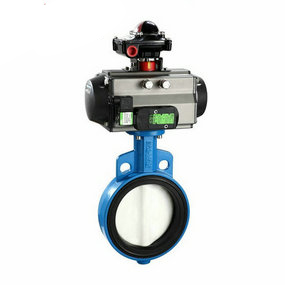Which one is better for the maintenance of double acting pneumatic butterfly valve? More detailed working principle of pneumatic ball valve in history
When the pneumatic ball valve works, the inner chamber is filled with compressed air (working pressure is 0.7MPa) to form a compressed air column. With the increase of vibration load, the height of the ball valve decreases, the volume of the inner chamber decreases, the stiffness of the ball valve increases, and the effective bearing area of the air column in the inner chamber increases. At this time, the bearing capacity of the pneumatic ball valve increases. When the vibration load decreases, the height of the ball valve increases, and the volume of the inner chamber increases. The stiffness of the ball valve decreases, and the effective bearing area of the air column in the inner chamber decreases. At this time, the bearing capacity of the ball valve decreases. In this way, the height, cavity volume and bearing capacity of the pneumatic ball valve are smoothly and flexibly transmitted with the increase and decrease of the vibration load within the effective stroke. The working principle is shown in the figure. Plane A-A is tangent to the capsule surface of pneumatic ball valve. And perpendicular to the capsule axis (a). The pneumatic ball valve takes the air inside the pneumatic ball valve as an elastic medium. When the air is compressed, the air will produce a reaction force, which will produce an elastic restoring force.


